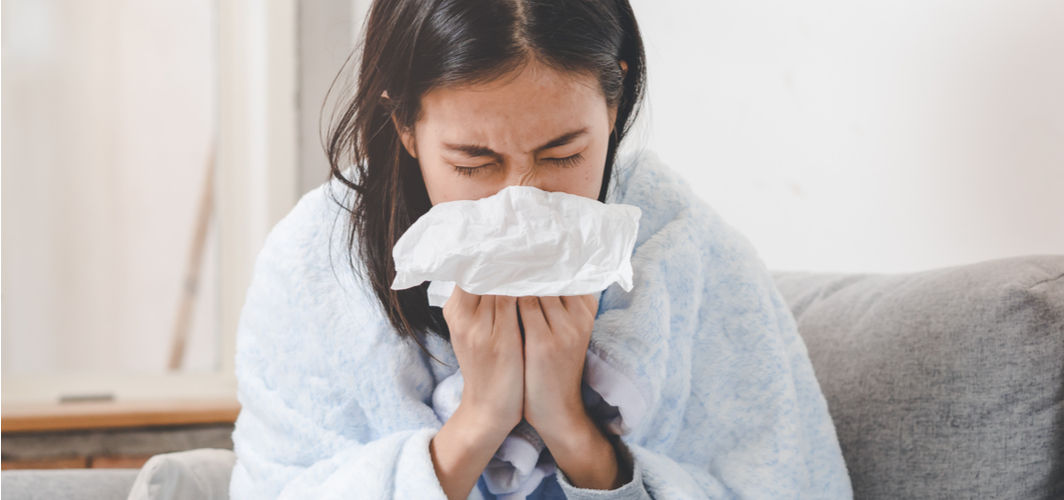Coronavirus Updates
Florona: Another COVID Variant or a New Viral Infection?
3 min read
By Apollo 24/7, Published on - 04 January 2022, Updated on - 18 October 2022
Share this article
0
2 likes

Since the detection of Omicron—a new variant of SARS-CoV-2 first discovered in South Africa— there has been a surge in the COVID-19 cases across the world. Amidst the spike in Omicron cases, Israel reported a case of ‘florona’ in a pregnant woman who was in labour and was admitted to the Rabin Medical Centre. While a lot still remains to be understood about this new viral infection, let us address some of the commonly asked questions about florona.
What is Florona?
Florona is a double infection of COVID-19 and flu that affects a person at the same time. While COVID-19 is a disease caused by the coronavirus, flu is caused by the influenza virus. Both the viruses share almost similar symptoms such as cough, fever, sore throat, headache, and fatigue. While some people develop no symptoms of COVID and flu, others may experience severe disease.
Is Florona a new variant of COVID-19?
No, florona is not a variant of the Coronavirus. It is a co-infection of COVID-19 and influenza. Doctors believe that co-infections could be the result of a collapsed immune system or lack of vaccination against the virus. Moreover, on testing the woman with coinfection in Israel, it was found that she was not vaccinated against either of the viruses.
Can flu and COVID co-infections cause severe symptoms?
Most studies conducted in the past determining the effects of concurrent flu and COVID infection on the body have been inconclusive. However, a few studies have found that some people with pre-existing flu are prone to develop subsequent COVID-19 infection. In February 2021, the results of a study, conducted by the Chinese scientists of Wuhan University, found that a person suffering from influenza A virus infection is more likely to develop COVID-19 infection as the flu virus promotes the entry of the SARS-CoV-2 virus into the body.
Similar studies have found that elderly patients and high-risk groups such as diabetics, hypertensive, and cardiac patients are prone to co-infections. Meanwhile, scientists are trying to explore how one virus affects the other.
Recommended reading: How Does COVID–19 Compare With Influenza (Flu)?
Can Florona be prevented?
Doctors believe that vaccination against both viruses can help prevent severe infection and even death. At present, all individuals over the age of 15 years can get vaccinated against the COVID-19 virus. Similarly, flu shots can be given yearly to people over the age of 18 years in the form of inactivated (dead virus) or live attenuated (weakened virus) vaccines.
As per the World Health Organization (WHO), older adults, pregnant women, those with underlying health conditions and healthcare workers should get themselves vaccinated against both the pathogens to prevent hospitalization and severe infection.
Along with vaccination, measures that can prevent both COVID-19 and influenza infection include:
- Avoiding crowded places and maintaining a distance of at least 6 feet in public places.
- Wearing a well-fitted N-95 or 3 ply mask while going out in public.
- Keeping the windows open for ventilation.
- Avoiding touching eyes, nose or mouth, and covering the nose and mouth with a bent elbow or a tissue while coughing or sneezing.
- Washing hands frequently with soap and water or using alcohol-based sanitiser.
- Contacting a doctor on developing symptoms such as high temperature, loss of appetite, difficulty in breathing, pain in the chest, or confusion.
Recommended reading: COVID-19 Vaccine Factbox: All About Vaccine Efficacy
Conclusion
Both COVID-19 and influenza viruses have almost similar symptoms and an identical way of transmitting infection. Though severe infection from either of the viruses can be potentially life-threatening, scientists have been studying the adverse effects of co-infection. Meanwhile, it is advisable to follow COVID-appropriate behaviour and get vaccinated against both viruses to prevent florona.
You can register for COVID-19 vaccination using the Apollo247 app.
Coronavirus Updates
Leave Comment
Recommended for you

Coronavirus Updates
Explained: The 2-DG Drug for COVID-19 Treatment
On 17th May 2021, the first batch of an indigenously developed anti-COVID-19 therapeutic drug 2-DG was formally released for emergency use in India.

Coronavirus Updates
A Commoner’s Guide to Wearing Masks Correctly
Wearing masks can restrict the spread of the Coronavirus but only if used the right way and when combined with other practices like social distancing and hand hygiene.

Coronavirus Updates
How Do We Prevent the Community Spreading of Coronavirus?
Follow social distancing norms, practice hand hygiene, wear masks, and follow the precautions mentioned in this article to prevent community spread of the Coronavirus.
Subscribe
Sign up for our free Health Library Daily Newsletter
Get doctor-approved health tips, news, and more.
Visual Stories

COVID-19 Home Care: Guidelines for Patients and Caregivers
Tap to continue exploring
Recommended for you

Coronavirus Updates
Explained: The 2-DG Drug for COVID-19 Treatment
On 17th May 2021, the first batch of an indigenously developed anti-COVID-19 therapeutic drug 2-DG was formally released for emergency use in India.

Coronavirus Updates
A Commoner’s Guide to Wearing Masks Correctly
Wearing masks can restrict the spread of the Coronavirus but only if used the right way and when combined with other practices like social distancing and hand hygiene.

Coronavirus Updates
How Do We Prevent the Community Spreading of Coronavirus?
Follow social distancing norms, practice hand hygiene, wear masks, and follow the precautions mentioned in this article to prevent community spread of the Coronavirus.